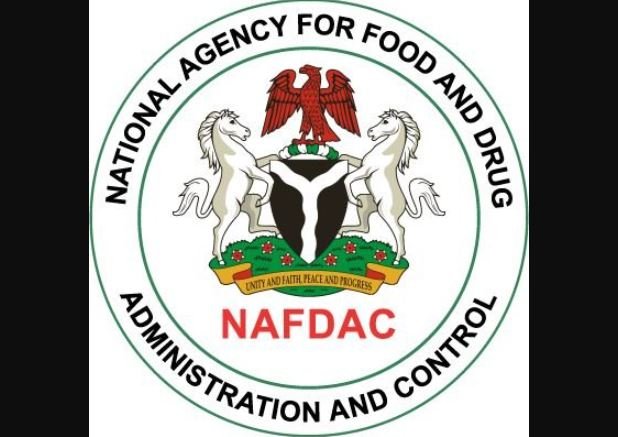NAFDAC, which stands for the National Agency for Food and Drug Administration and Control, is a Nigerian government agency responsible for providing the safety and quality of food, drugs, cosmetics, medical devices, and other products.
Its main job is to regulate and control the manufacture, importation, exportation, distribution, advertisement, sale, and use of these items to protect public health.
NAFDAC conducts inspections, tests products, and issues certifications to confirm that everything available to consumers is safe. However, In this guide, you’ll learn about when this agency was founded, and who established It. Plus, the history of NAFDAC, and its departments.
READ ALSO: Complete List Of All NAFDAC DGs (1994-Present)
When Was NAFDAC Established In Nigeria?
NAFDAC was established in Nigeria in 1993. It was created to regulate and control the manufacture, importation, exportation, distribution, advertisement, sale, and use of food, drugs, cosmetics, medical devices, packaged water, chemicals, and detergents.
Who Is The Founder Of NAFDAC?
NAFDAC, the National Agency for Food and Drug Administration and Control, was established by the Nigerian government in 1993 through Decree No. 15, which was later updated by Decree No. 19 in 1999.
The agency was created as part of the Federal Ministry of Health to protect the health of Nigerians by ensuring the safety and quality of food, drugs, cosmetics, medical devices, bottled water, chemicals, and detergents.
The main reason for its creation was the growing problem of fake and low-quality medicines in Nigeria. However, there was no single founder of NAFDAC, but the agency has had different directors-general since it started. One of the most notable leaders was Dr. Dora Akunyili, who served from 2001 to 2008.
She was the first female to hold this position, and she played a big part in improving NAFDAC. Today, the agency is headed by Dr. Mojisola Adeyeye.
What Is The History Of NAFDAC?
The National Agency for Food and Drug Administration and Control (NAFDAC) was created by the Nigerian government in 1993. It was established during the military rule of General Sani Abacha.
The agency was set up to regulate and control the production, importation, sale, and use of food, drugs, cosmetics, medical devices, and chemicals in Nigeria. NAFDAC was formed because of global concerns about the dangers of counterfeit drugs.
In 1988, the World Health Assembly asked countries to help fight the growing threat of fake medicines, which had become a big problem in Nigeria.
Fake and unregulated drugs were causing many health issues, and by 1989, over 150 children had died because of a poorly made drug. Due to this problem, some neighboring countries, like Ghana and Sierra Leone, even banned Nigerian-made drugs, foods, and beverages.
Before NAFDAC was created, there was another agency called the Directorate of Food and Drug Administration and Control, but it was not effective due to the lack of strong laws to fight fake drugs.
NAFDAC officially became active on January 1, 1994, and it was placed under the Federal Ministry of Health to protect Nigerians from harmful products.
In 2000, President Olusegun Obasanjo’s government was unhappy with the agency’s progress in fighting fake drugs, so the management of NAFDAC was dissolved.
A year later, in 2001, a new management team was appointed, led by Dr. Dora Akunyili as Director-General. Under her leadership, NAFDAC made progress.
The agency passed new laws like the Counterfeit and Fake Drugs Act and the NAFDAC Act of 1999, which gave it stronger powers to punish offenders.
Dr. Akunyili also led many raids on markets selling fake drugs and shut down companies producing unsafe products. NAFDAC destroyed billions of naira worth of counterfeit drugs and introduced systems to track and trace the distribution of drugs.
They also banned the importation of codeine-containing cough syrups to reduce drug abuse. Since its creation, NAFDAC has grown stronger to guarantee that the food, drug, and chemical industries in Nigeria are properly regulated.
READ ALSO: How To Know A Fake NAFDAC Number?
How Many Departments Are There In NAFDAC?
NAFDAC is led by the Director General and has a total of twenty departments, which are known as directorates.
Director General’s Office
The Director General’s Office is headed by the Chief Executive Officer who is responsible for the day-to-day activities of the agency. Under the Director General’s Office, there are ten (10) units or programs
- Public Affairs
- NAFDAC Training and Research Institute (NT&RI)
- Information and Communication Technology (ICT)
- Procurement
- Internal Audit
- One Stop Investment Centre (OSIC)
- Reforms
- Quality Management System (QMS)
- WHO-Global Benchmarking Program
- Health Safety and Environment (HSE) Units
Directorates And Departments
The twenty (20) directorates that make up NAFDAC’s organizational structure include:
- Food Safety and Applied Nutrition Directorate
- Drug Evaluation and Research Directorate
- Narcotics and Controlled Substances Directorate
- Veterinary Medicine Directorate
- Ports Inspection Directorate
- Investigation and Enforcement Directorate
- Registration and Regulatory Affairs Directorate
- Planning, Research, and Statistics Directorate
- Chemical Evaluation and Research Directorate
- Medical Devices Directorate
- Establishment Directorate
- Finance and Accounts Directorate
- Inspectorate Directorate
- Pharmacovigilance and Post-Marketing Surveillance Directorate
- Legal Services Directorate
- Public Affairs Directorate
- International Relations Directorate
- Procurement Directorate
- Information Technology Directorate
- Internal Audit Directorate
In addition to the headquarters in Abuja, NAFDAC has six (6) zonal offices, a Lagos office, and a Federal Capital Territory (FCT) office, all headed by directors.

